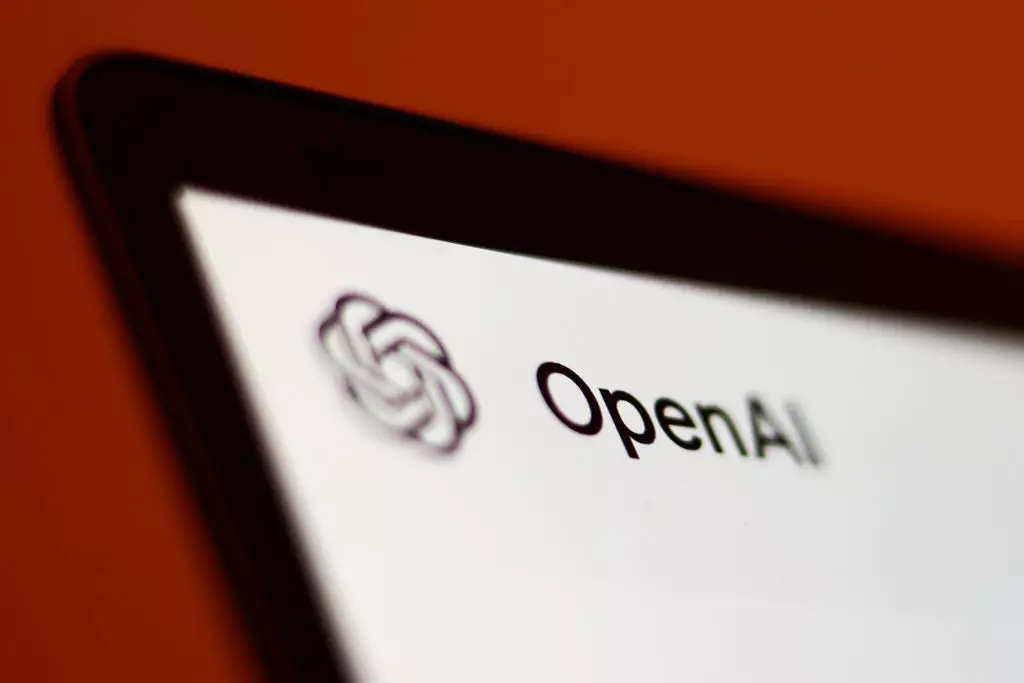The tech landscape is rapidly evolving, and at the epicenter of this transformation is Artificial Intelligence (AI). Recently, OpenAI, in collaboration with Japanese conglomerate SoftBank and tech giant Oracle, announced a monumental undertaking dubbed The Stargate Project. This ambitious venture aims to construct multiple AI-focused data centers across the United States, starting with a significant facility in Texas. The projected scale of investment and the promise of job creation raise both optimism and caution about the future landscape of AI infrastructure.
Unveiled at a press conference at the White House, The Stargate Project is set to become a game-changer in AI development. Initially backed by a staggering commitment of $100 billion, the total investment could balloon up to $500 billion within four years. OpenAI, Oracle, and SoftBank jointly articulated their vision, emphasizing that the project goes beyond mere technological advancement; it aims to bolster American industrial strength and safeguard national security.
The project’s launch coincides with a broader narrative around infrastructure investment in the U.S. Given the deep interconnections between AI development and national security, this initiative is strategically timed to ensure that the U.S. maintains its leadership position in the global AI arena. The rhetoric surrounding “hundreds of thousands” of jobs created due to this initiative serves both economic and political purposes, invigorating public interest while addressing unemployment concerns inherently linked to technological advancements.
Key figures from the tech industry attended the announcement, including SoftBank’s Masayoshi Son, OpenAI CEO Sam Altman, and Oracle co-founder Larry Ellison. Microsoft, also a partner in the Stargate Project, brings substantial tech expertise to the table, aiming to fortify its own investments in AI. The collaboration reflects a unique alignment of financial, operational, and technical capabilities among these industry titans, enabling them to tackle the high demands of data processing and infrastructure development.
The strategic roles outlined in the project signify that SoftBank will oversee financial investments while OpenAI spearheads operational management. Such delineations enhance efficiency and advance the project’s goals, exemplifying a modern partnership model that prioritizes both clarity and specialization.
One of the most striking ramifications of the Stargate Project is its impact on data center architecture. The initial site will be based in Abilene, Texas, with plans to eventually expand across various states. These data centers are projected to host cutting-edge chips designed expressly for AI processing, developed through strong alliances with semiconductor firms like Broadcom and TSMC.
OpenAI’s plans signal a proactive approach to chip design, addressing the significant bottlenecks that have plagued AI development due to compute limitations. With ambitious timelines set for 2026, the implications of successful chip integration could redefine the performance benchmarks for AI systems and applications.
As with any large-scale infrastructure project, the Stargate initiative is not without its critics. Concerns surrounding the environmental impacts of data centers are prevalent. Data centers have the potential to consume massive quantities of water and energy, raising alarms in regions already burdened with resource scarcity. Additionally, the misalignment between promises of job creation and actual employment outcomes fuels skepticism among local communities and industry experts.
Interestingly, despite these concerns, the investment momentum appears unyielding. Projections from McKinsey suggest that capital expenditures related to electrical and mechanical systems for data centers could surpass $250 billion in the coming years. This underscores a paradox in the tech industry; while accountability and sustainability remain critical topics, investments continue to flow unchecked.
The Call for Industry Transformation
As AI technologies proliferate, industry leaders, including OpenAI’s Sam Altman, have been vocal in their calls for regulatory reforms to streamline the building process for essential infrastructure like data centers. Altman critiques the bureaucratic obstacles hindering development, emphasizing that these barriers are detrimental not only to tech companies but to the nation’s technological progress as a whole.
The urgency for transformation is palpable as AI’s role in global economies expands. The Stargate Project, in that context, is more than just an investment initiative; it symbolizes a critical inflection point in how the U.S. approaches infrastructure, economic growth, and technological innovation.
While the Stargate Project heralds a promising future for AI infrastructure and economic revitalization, the multifaceted implications surrounding job creation, environmental sustainability, and regulatory reforms will require careful navigation. The success of this venture may set the tone for future investments and the trajectory of U.S. technological leadership. As stakeholders engage with the complexities of AI, the world will be watching closely to see how this ambitious initiative unfolds.

